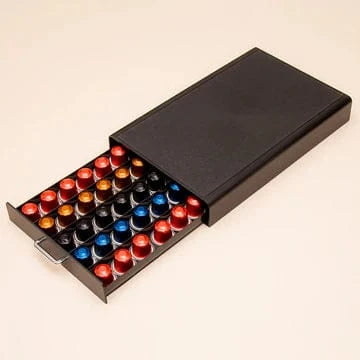
Decaf your Caffeine Worries!
Today’s health-conscious millennials are wary of what goes in their mouths. They like to spend money on the food which is organic, filled with health benefits. With the increase in Food products loaded with GM produce and preservatives, people have started moving to raw, natural, and healthy products. Decaf is also one of such lifestyle change. On the one hand, caffeine has a copious amount of health benefits, however, on the other hand, it doesn’t agree with some people’s health system especially with those who suffer from migraine, indigestion, irritable bowel syndrome, diabetes, insomnia. So, what do you do when you are a die-hard coffee lover and have one of these health issues? The answer to this is: Decaf. Thanks to dr. Friedlieb Ferdinand Runge, who attempted research on coffee and the effect of caffeine. Years later another scientist referred Dr. Runge’s work and accidentally found the decaffeination process. In 1903, a shipment of coffee that was in transit was drenched with seawater, leaching out the caffeine but leaving the coffee flavor intact. Roselius replicated this by working out an industrial method that involved steaming the beans with various acids before using benzene solvent to remove the caffeine. This was the start of decaffeinated or decaf coffee. However, Due to health risks, this method was later banned.

Let’s decode Decaffeination process-
Before we look at any specific decaffeination process let’s see what they share in common as a group.
- Coffee is always decaffeinated in its green (unroasted) state.
- The biggest challenge is to separate only the caffeine from the coffee beans, not the other essential chemicals that are important to the taste and aroma of this wonderfully complex elixir.
- Since caffeine is a water-soluble substance, water is used in all forms of decaffeination.
- However, water by itself is not the best solution for decaffeination. Water is not a “selective” solvent and therefore removes other soluble substances, like sugars and proteins, as well as caffeine. Therefore, all decaffeination processes use a decaffeinating agent. These agents help speed up the process and minimize the “washed-out” effects that water alone would have on the taste of decaf coffee.
Two types of decaf processes
There are two types of decaffeination processes. The first is called the Swiss Water Process method. Decaf coffee made with this method can be found at most gourmet coffee shops, organic food grocery stores. The other decaffeination processes use some sort of a chemical solvent. In all of the decaffeination processes, the green coffee beans begin the journey by being steamed and/or soaked in water. This makes the caffeine soluble and primed for extraction.
The Swiss Water Process Method
The Swiss Water Process is popular among its advocates because it does not use chemicals. Instead, a green coffee extract is used. This green coffee extract is almost caffeine-free. Due to chemical solubility laws, the caffeine will move from an area of higher concentration (the bean itself) to an area of lower concentration (the extract).
Since the extract contains essential oils and the other valuable components of the bean, mostly caffeine seeks its way into the extract and leaves behind the desirable components of the coffee. Done properly, this organic method successfully removes 94 – 96% of the caffeine while it retains more of the flavor compounds present in the essential oils than the chemical methods.
Keep in mind that Swiss Water Process coffee beans are generally more expensive than beans treated with a chemical solvent. This is due to the fact that Swiss Water Processing almost always accompanies high-quality arabica beans, while chemical processes are used on both arabica and robusta beans.
The Chemical Solvent Method
The chemical solvent method is the most commonly used method for removing the caffeine from coffee. Chemical methods remove the caffeine better than the Swiss Water Process method because the solvents used can target caffeine most evenly and effectively.
Common solvents include methylene chloride, ethyl acetate, and highly pressurized carbon dioxide. After the green beans are moistened, they are then immersed in the solvent. After the solvent performs its action, the beans are rinsed with water. After the beans have been rinsed, they are steamed. Residual solvents evaporate in the steam. The rinsing and evaporation systems collect the solvent for recycling and re-use. Any remaining solvent will be burned off in the roasting process. The chemical caffeine method will remove 96 – 98% of caffeine.
Caffeine Limits around the world-
The amount of caffeine permitted in decaffeinated coffee varies. Several countries set a maximum. Australia, for example, permits no more than 2mg/kg. The European Union states that roasted decaf coffee may contain no more than 0.1% caffeine, resulting in a 99.9% caffeine-free product. The US Food and Drug Administration (FDA) guidelines note that decaffeination processes remove 94-98% of the caffeine present in the green bean. An FDA spokesperson suggests a baseline of 97% removal. The precise amount of caffeine measured in milligrams per kilo varies by varietal and is significantly greater in robusta. Origin is also a factor. In addition, coffee is grown slowly at higher altitudes generally has lesser concentrations of caffeine.
While all these methods work effectively to an extent, there is no such thing as a completely decaffeinated coffee. Decaf coffee beans still contain caffeine content that is lower than one percent.
































